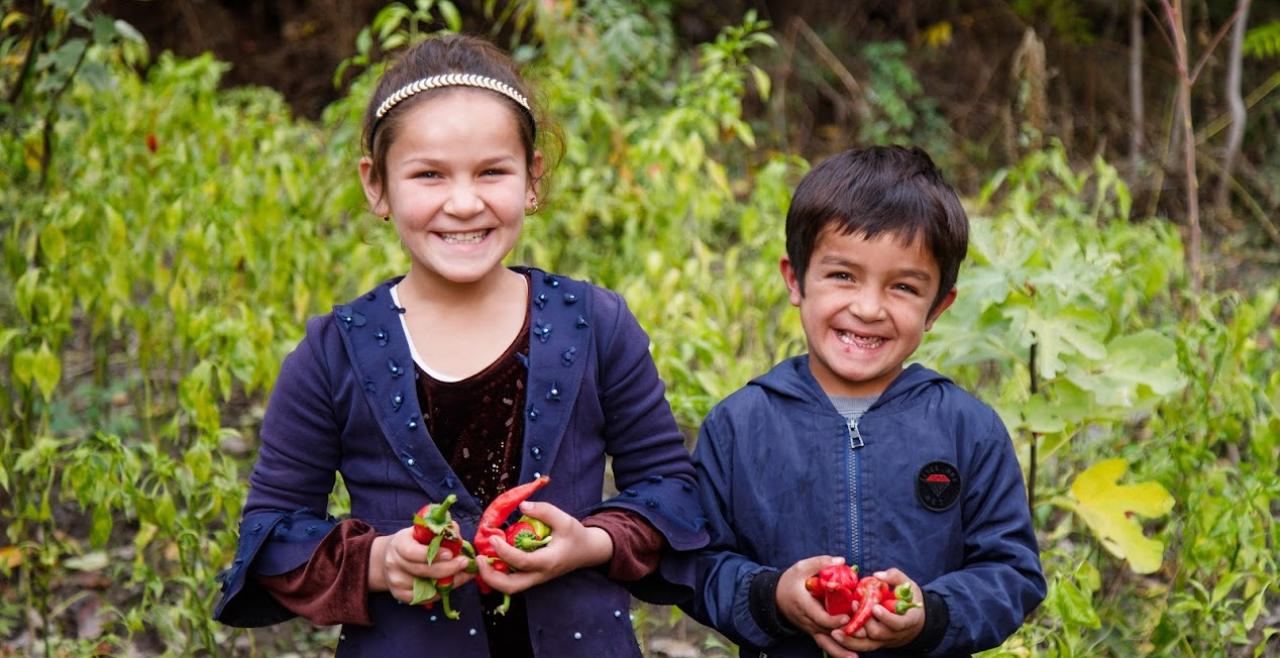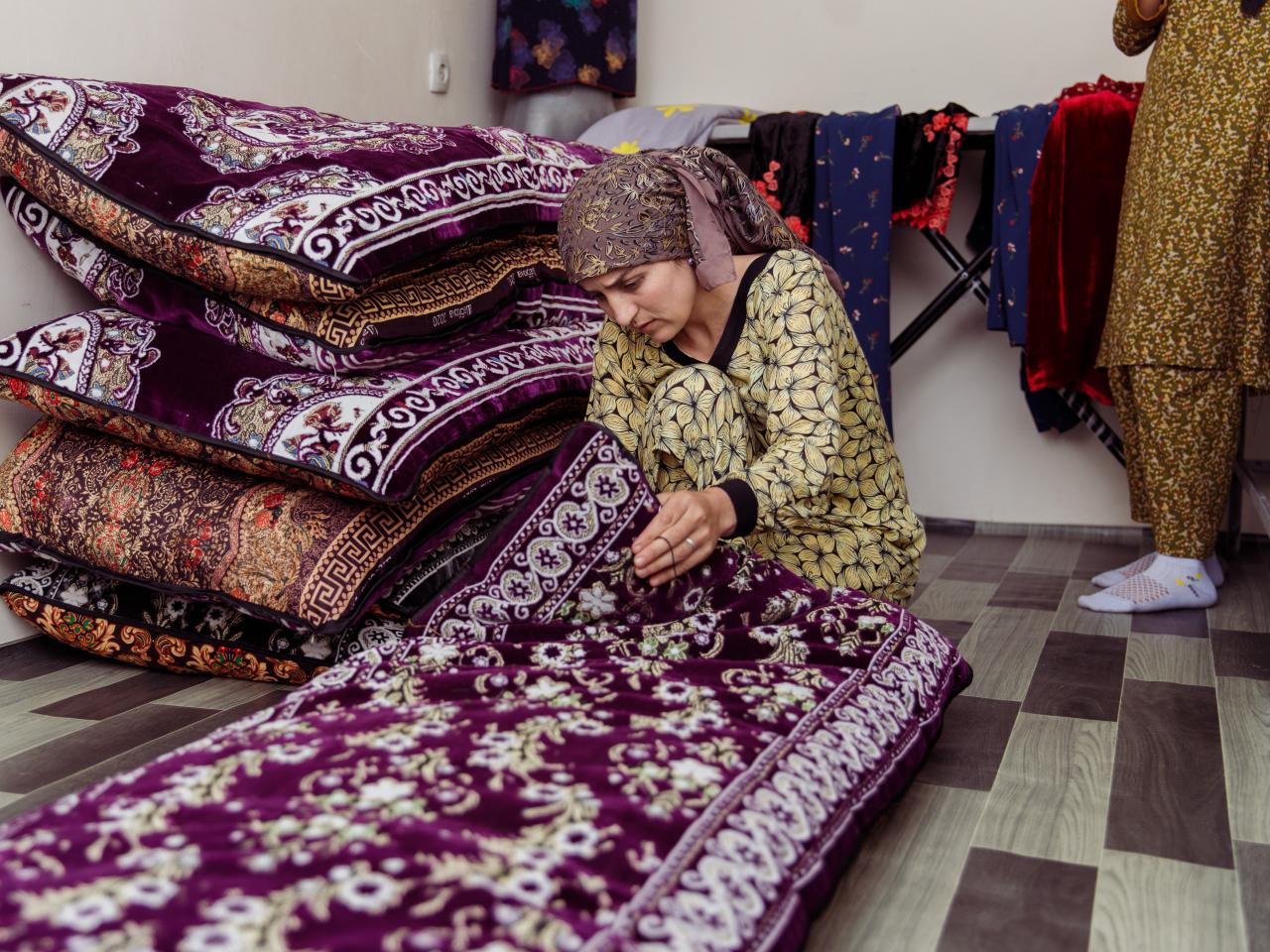Building tolerance: Ending violence through positive upbringing in Tajikistan

In Tajikistan, more than 600 teachers were trained in handling cases of (VAWG), including how to appropriately address complaints by children concerning violence. Hundreds of complaints have been submitted to and addressed by participating schools since the module ‘Ways and methods of positive upbringing without violence and discrimination’ was developed.
In Tajikistan, widespread social norms can seek to justify gender-based violence and contribute to low rates of reporting. In 2017, 24 per cent of women aged 15–49 reported experiencing physical violence - often at the hands of husbands, mothers-in-law or other family members. Only 1 in 10 women sought help after suffering domestic abuse. Embarrassment, fear of retribution, economic dependency and societal norms such as power imbalances between men and women, concern for family privacy and victim-blaming are all reasons cited by women who hesitated to report abuse.
"Although I was a teacher myself, I often paid more attention to boys than to girls." - Ismail Subkhonkulov, teacher in Yovon District
Girls who marry at early ages are at higher risk of domestic abuse, so it is important to address drivers of VAWG at early ages and in safe environments, such as schools.
Even though students in Tajikistan feel teachers are one of their main sources of support, just 53 per cent of students in UNICEF-targeted schools felt they could go to their teachers with their problems. Spotlight Initiative, in partnership with UNICEF, government and civil society, developed a programme to address negative societal norms towards girls and create a safe school environment.
To address negative social norms, a training module on ‘Ways and methods of positive upbringing without violence and discrimination’ was developed by the Republican University for Retraining and Improving Qualifications for Education in collaboration with Qurbonzoda Khonali, former Head of the National In-Service Teacher Training Institute (NITTI), and Egamberdiev Sino, Head of the Learning Department at the NITTI.
The training module was rolled out with 600 teachers in 35 schools and communities across 13 regions in Tajikistan. It consists of five pilot training sessions with a group of experts and teachers. Participants discussed 12 topics using active teaching methods such as group work, two-person discussions, role-playing, working in group circles, creating Venn diagrams and writing diaries.
"Although I was a teacher myself, I often paid more attention to boys than to girls," said Ismail Subkhonkulov, a teacher in Yovon District. "Like most of the villagers, I thought it wasn’t that important for a girl to study. After participating in this training, my opinion completely changed. Now I know what the roles and responsibilities of men and women are and what gender equality is."
Participants were trained in positive parenting, non-violent methods of discipline and building trust with students through enhanced communication, thereby leading to a safe environment for preventing and responding to gender-based violence.
Once the pilot training proved the efficacy of the module, it was submitted to the Republican Educational and Methodological Center of the Ministry of Education and Science for approval. The module is now a required component for all teachers through the Institute of Professional Development and Retraining of Education Workers.
“Recently, I noticed that the teacher of our class … began to treat us differently and politely communicated with us and listened to our opinions." - Student, Dushanbe
During the development and implementation of the pilot programme, issues such as negative attitudes towards girls, treating girls as a burden, and restricting girls’ rights under the pretext of protecting them were addressed. Teachers who participated in the pilot programme will themselves train educators in 250 additional schools, benefiting 18,000 more individuals. Further, 30 additional instructors will attend the Republican University of Retraining and Improving Qualifications for Education with the aim of reaching an additional 600 teachers in 13 districts in the coming years.
Feedback from the students has been positive. “Recently, I noticed that the teacher of our class … began to treat us differently and politely communicated with us and listened to our opinions," shared one student from a school in Dushanbe.
"She tried to help each student and find an approach to each problem... Our class became different: Some of my classmates used to make a lot of noise and behaved inappropriately, and now they have begun to behave well during classes and outside.
"My teacher said that she had recently participated in training on ‘Ways and methods of positive upbringing without violence and discrimination’ ... She now uses positive parenting methods in her class with success. Now, I want to go to school every day because I know that my teacher will support me and help me in any situation... Even my classmates, in my opinion, have become kinder.”
Participating schools also established complaint response and referral mechanisms to ensure safer reporting environments for victims of domestic abuse and/or VAWG. Before January 2020, schools in Tajikistan did not have a single method for reviewing complaints. Each school handled complaints as best they could through teacher, principal and parental review. Through this new system, complaints are addressed according to procedural guidelines. Some are referred to local police departments, district education departments, local authorities, community and village leaders or district child rights departments. Key authorities alongside school administrations and teachers, religious and community leaders, parents and civil society organizations have implemented these mechanisms to help prevent and respond to VAWG in and around schools, while transforming the discriminatory gender norms and power dynamics that underpin VAWG.
Originally published in 'Together for Change: Documenting the fight to end violence against women and girls in the Pacific, the Caribbean and Central Asia'.

